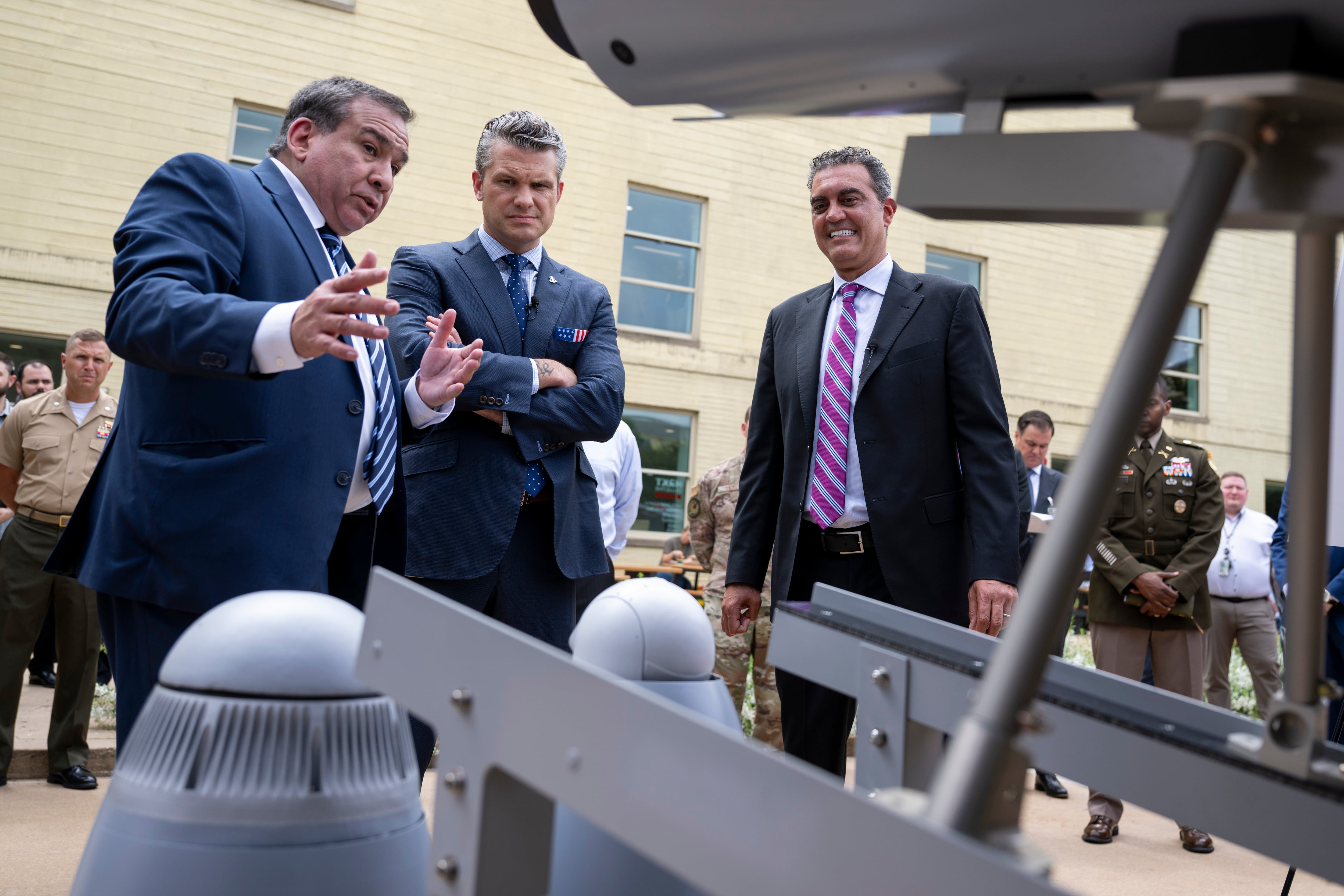WASHINGTON — The recent revolt by Google engineers against working with the Pentagon’s Project Maven program caught many in Washington by surprise and set off a wave of questions about whether the Defense Department can work with the commercial technology sector.
But Michael Griffin, the undersecretary of defense for research and engineering — charged with keeping the Defense Department ahead of its enemies and whose portfolio includes the department’s Silicon Valley outreach hub — says the cultural fault lines that led to the reaction did not come out of nowhere.
“I was not surprised,” Griffin told reporters Thursday. “I spent several years out in Silicon Valley in a couple of different jobs. I am well aware that many folks do not share my orientation about the primacy of national security.”
Project Maven was part of a broader attempt to develop artificial intelligence for the Pentagon. The project took existing data from military archives and used it to teach the algorithm what to look for, and then began applying the algorithm to Air Force data in real time.
The goal is to allow the computer to comb through the hours of live video collected by U.S. Air Force systems and quickly sort what is and isn’t notable, as opposed to having an airman watch each minute — an effectively impossible task given the wealth of information gathered by the service every day.
Griffin called it “one of our early success stories in applying AI,” noting the importance of training the computer to know what to look for.
“AI algorithms, machine-learning algorithms can’t do anything a human can’t do. We have to train them, OK? But once trained, they can do what they’ve been trained to do by humans much more voluminously and much more rapidly than we can hope to do.”
However, an April revolt of 3,000 Google employees who signed an open letter against having to “build warfare technology” led to the tech giant announcing it would end its partnership on Maven come 2019.
During his talk with reporters, Griffin argued that the divide is a sign of a healthy American democracy. “We live in a country where such debates are not only allowed but encouraged. I don’t want to live in a country where people can’t have those debates and discussion and can’t have their own views,” he said.
“My view is myself and my colleagues are engaged in protecting their right to disagree. Because most countries of the world in which they could choose to live, they wouldn’t be allowed to have those disagreements.“
Aaron Mehta was deputy editor and senior Pentagon correspondent for Defense News, covering policy, strategy and acquisition at the highest levels of the Defense Department and its international partners.








